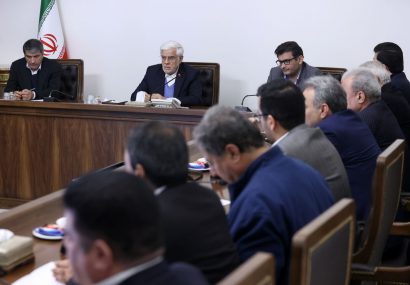Structural Reforms Needed in Oil Refining Sector
TEHRAN (Iran News) Mohammad Reza Aref made these remarks during the “Performance Review and Strategic Development Plans for the Oil Refining and Distribution Sector” meeting held on Sunday night. The session was attended by senior government officials and representatives from the country’s top 10 refineries.
Commending the efforts of managers and workers in this field, Aref described their work as a “major achievement” and noted that the oil industry, alongside its upstream sectors such as refineries, plays a strategic role in the country’s economy.
After hearing the senior managers’ proposals for enhancing the industry and addressing existing gaps, Aref stressed the importance of prioritizing the expansion of existing refineries and completing ongoing projects over building new ones.
Addressing the refinery managers, Aref urged them to take ambitious steps by utilizing advanced technologies and leveraging the potential of young Iranian talent. He also highlighted a nostalgic era when top high school students viewed the petroleum engineering field as a top career choice, urging a return to such conditions to attract elite university graduates to the industry.
The Vice President assured managers of the government’s full cooperation in resolving customs-related issues for upgrading and modernizing refineries. However, he also emphasized the need to adhere strictly to environmental regulations to ensure that development projects do not harm the environment.
He further stated that increasing refinery efficiency—targeted at a 2.8% annual growth under current laws—requires leveraging modern technologies. He lamented that misjudged priorities in the past had led to missed opportunities, such as delaying sulfur removal from refineries, which could have been accomplished for $1 billion decades ago but now requires several times that amount.
Aref also highlighted the significant blow that energy imbalances have dealt to the industry. He warned that such disruptions ripple across interconnected sectors, compounding challenges throughout the economy.
Concluding his remarks, Aref underscored the necessity of structural reforms in the oil refining sector, which he said would reduce dependence on imports and create export opportunities. He also stressed that refinery development must align with territorial planning policies, as outlined in the Seventh Development Plan.
- source : IRAN NEWS EONOMIC DESK






























